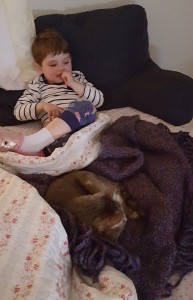 “Can you explain why we don’t need to tell toddlers to say sorry, thank you, please, etc? My child’s caregiver told her she needs to say sorry when she “does something bad”, which in this case was poking the caregiver’s eye. My daughter is 19 months old.
“Can you explain why we don’t need to tell toddlers to say sorry, thank you, please, etc? My child’s caregiver told her she needs to say sorry when she “does something bad”, which in this case was poking the caregiver’s eye. My daughter is 19 months old.
“Say please.” “Say thank you.” “Say you’re sorry.” “Say hello.” “Say goodbye.” We can instruct or insist that our young children parrot our words, but if we want them to develop true kindness, if we want them to develop social graces and true empathy, if we want them to develop the ability to feel and express true gratitude, if we want them to express true sorrow when they have hurt someone (even inadvertently), directly instructing them isn’t the way to go.
Instead, I suggest trusting children and modeling for them the values and attitudes we desire to instill. If young children are treated and talked to with respect, they will, in time, learn to talk to and treat others with kindness and respect, no prompting or reminders needed, and it’s a beautiful thing to witness a young child acting from a genuine and authentic place, as opposed to hearing them issue a half hearted and hasty thank you or I’m sorry that is prompted by an adult.
It can be hard to wait and trust, but make no mistake, your child is watching, listening, and absorbing YOUR words, actions and attitudes. Janet Lansbury says:
“Trust, whenever and wherever it’s possible, reasonable and age-appropriate, is one of the most profound gifts we can give our children. Through trust we offer children opportunities to fully own their achievements and internalize the validating message: “I did it!” This, as opposed to the far less self-affirming one: “Finally, I did what my parents have been wanting me to do!” Believe me, children know the difference.”
What a child experiences and lives is what a child eventually expresses in their own particular and unique way. How do we model for children? We can say please and thank you to our child when making requests. We can let them hear us saying a genuine, “I’m sorry,” when we have made a mistake. We can greet friends and loved ones warmly. We can say thank you on our child’s behalf. “Thank you for coming to help celebrate Julie’s birthday and for the beautiful book you brought for her.”
We often receive gifts in the mail from far away friends, and since my child has been a young toddler, I’ve always made it a point to open the boxes with her, and to say, “Our friend Dee sent these gifts for you, because she loves you and thinks of you. We are so lucky to have friends who think of us. I want to write to Dee to say thank you.”
Every child has their own time table. For a child who is on the autism spectrum and who struggles with feeling comfortable with social interactions asking them to follow social conventions is something that may be beyond their ability, and may cause more harm than it does good. As Raun K. Kaufman explains in his post, Why Forced Social Niceties Lead To Less Social Kids:
“Do you ever make your child on the #autism spectrum say “hello,” shake someone’s hand, pose for photos, or obey some similar#SocialConvention?
I completely understand where the desire to do this comes from. And, because of this, I’m also aware that it might be hard to see how counterproductive it can be.
Forcing our kids to obey these social niceties creates the opposite of a social child. Why? Here are three reasons:
1) It breaks trust and connection by forcing the child to do something against his/her will.
2) It creates a control battle, which actually causes our kids to dig in and resist more.
3) It takes the most important area of our kids’ learning and growth (i.e., social interaction) and transforms it into a meaningless task that is completely divorced from real social connection.”
Until my child was about three and a half years old, she never once uttered a please, a thank you, or an I’m sorry, and hellos and goodbyes were pretty hit or miss as well. She’s a gentle, observant child who feels deeply and is quite verbal, but is a little slow to warm in social situations. I trusted that if I was patient and continued to model for her, that one day, she would spontaneously begin to express her feelings in socially acceptable ways, and sure enough, she did. She now routinely greets friends with hugs and blows kisses goodbye, she shows concern and offers comfort when a friend is sad or has been injured, she says please and thank you regularly, and at the park the other day, she spontaneously offered to share her snack with a little girl who was eyeing her kale chips.
It began one day when our cat Pandera was ill, and Carmel, the woman who had fostered her, came to check on her and administer medicine. She also brought a book for R. which she thought R. would enjoy, (since my little one is obsessed with all things cat). R. was quite worried about Pandera, and I told her that Carmel was going to come and check on her while she was at school that day. On the way home from school, R. asked about Pandera, and I told her Carmel had visited, and Pandera seemed to be feeling much better. I also mentioned that Carmel had left a book for R. to read to Pandera.R. was relieved and excited, “I’m so glad Pandera is feeling better, Mama.” Then…. “Mama, I want to write a card to say thank you to Carmel for helping Pandera, and for bringing me a book. Pandera is a special cat, and Carmel is special because she took care of Pandera, AND she brought me a book to read to Pandera. Is that a good idea?” I said that I thought it was a fine idea.
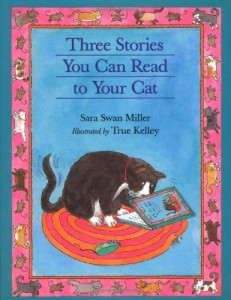
Once we got home, after running to pet Pandera, R. asked me to help her find a card with a picture of a cat on it (“because Carmel likes cats like me”), and then, my child, who has difficulty sitting still for more than two minutes at a time, sat at the kitchen table for half an hour, as she carefully and painstakingly “wrote” and signed a thank you note to Carmel. She then sealed it in an envelope, and insisted on “wrapping” it in a plastic baggie (because it was raining and she didn’t want it to get wet), and she placed it by the door with instructions for me to, “Please don’t forget to give the card to Carmel when she comes tomorrow, because I want her to know how special she is.”
My heart swelled. That, my friends, was a three and a half year old child’s genuine, heartfelt, and authentic expression of gratitude to another human being she felt a connection with, and it was so worth waiting for her to come to the point of wanting and being able to express it in her own way.
Trust. Model. Believe in the inherent goodness and intelligence of your child. Please, thank you, hello, goodbye, and I’m sorry will come in it’s own good time.
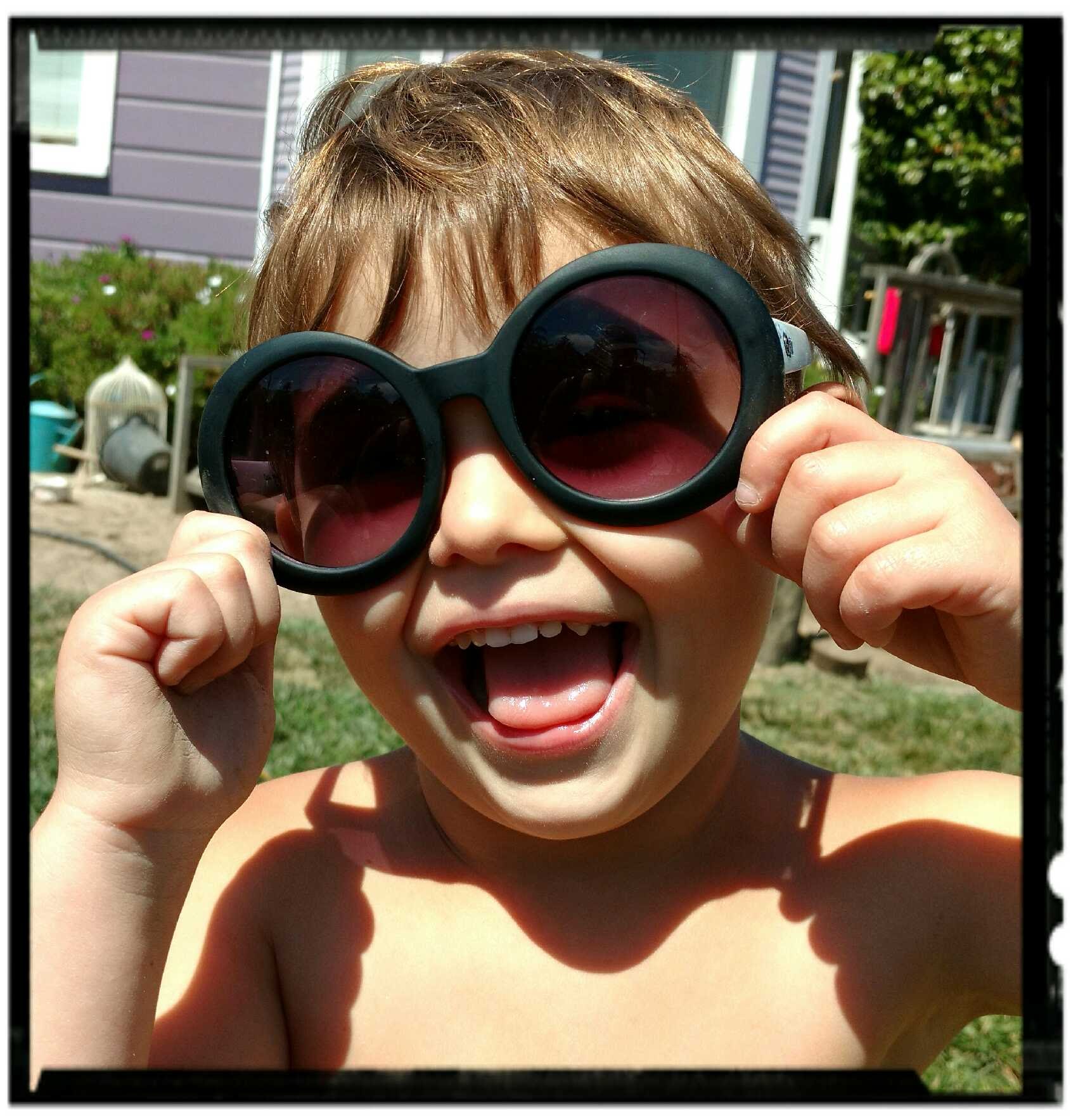
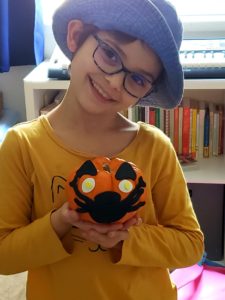
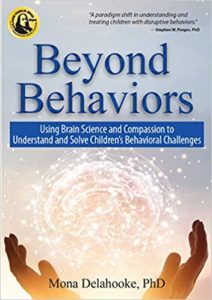
 “Can you explain why we don’t need to tell toddlers to say sorry, thank you, please, etc? My child’s caregiver told her she needs to say sorry when she “does something bad”, which in this case was poking the caregiver’s eye. My daughter is 19 months old.
“Can you explain why we don’t need to tell toddlers to say sorry, thank you, please, etc? My child’s caregiver told her she needs to say sorry when she “does something bad”, which in this case was poking the caregiver’s eye. My daughter is 19 months old.